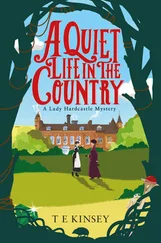‘What if someone else wanted to use it, though?’
‘Like who?’ He looked at me with adolescent contempt. ‘To be quite frank, I don’t think you’d find another set of parents prepared to send someone like me to a school like that.’
I remembered my parents’ own inexplicable determination to send my partly deaf young brother to one of these privative institutions. In the spirit of refutation, I considered sharing this coincidence with Martin, but having already revealed so much about myself had no more appetite for confidences.
‘So why did they?’
‘I told you. We always have. The dogfucker. Grumps. Great-Grumps. Everyone.’
He didn’t seem particularly put out by the presence of these corroded manacles around the tender, fleeting flesh of his own life. I realized then that, rather than resent his parents’ decision, he was grateful for it. At times like these I felt our differences so strongly that our moments of intimacy receded, their once-pungent reality framed and reduced, like holiday photographs.
‘I hated school,’ I said, collapsing my elbow beneath me so that I lay once more on my back.
‘You hate everything.’
I found this comment excessively spiteful, particularly given that I had provoked it with an observation more passing than pointed; and one, too, which deserved if not sympathy then at least the lesser balm of politeness. I sensed in this bitterness the residue of our earlier conversation, which Martin’s sensibility had evidently been too undeveloped fully to digest. I wondered whether perhaps he was offended that I had come to him on the hoof, as it were, a fugitive from larger dilemmas in whose shade he was inevitably dwarfed; or whether, more realistically, he was still sore at my rejection of his comforting hand, a gesture which can’t have been easy for a boy of his age to make, and which I had rewarded with a reaction indistinguishable from revulsion. I searched, in any case, for some grounds on which to disagree with him, and to my perturbation was unable instantly to find any. As seemed to have become my habit, the longer I delayed making any answer the less I could seem to separate Martin’s accusation from the truth; and by the time I had thought through the reasons for his disaffection with me, the two had become inextricably melded. Was it true that I hated everything? It was certainly the case that I could think of little immediately that I loved; but it was for this very reason, I reminded myself, that I had sought to change my circumstances so dramatically. What I had said to Martin about feeling that I had, after my marriage, reached the end of my life was more or less true. Having up until that moment believed that I had hardly begun it, this was quite a leap. What I felt, more exactly, was that I had missed the substance, the filling between these two states, which I felt sure would have contained the meat of love; indeed, the essence of life itself.
I made, then, no reply to Martin as we sat there beneath the trees; and as he had during my silence turned unhappily back to his book, we were stranded far from conversation for some time, before an indistinct shout from the house caused us both to turn.
‘Lunch,’ said Martin decisively, slamming his book shut, although I had been able to make no sense of the sound.
I was grateful for the distraction; and grateful too for the work of pushing Martin back up the lawn to the house, which gave our relationship a clarity our conversations frequently lacked. The heat was very fierce as we made our way over the long, striped perspective of the grass, but although I soon felt the familiar grind of it on the top of my head, it no longer had the character of an assault. Indeed, I felt almost flippant at the speed with which I had adapted to this new element, and walked through it as proudly as if I had sprouted gills or grown wings. Ahead of us I could see the dormant arrangement of garden furniture being activated by Mr Madden, who went about the business of removing the chairs from where they lay doubled up over the table top and setting them in an orderly circle with the bored efficiency of a factory assembly line worker. His demeanour was not particularly abject, and yet I found myself wondering as I watched him whether he was happy. Seeing him so obedient in solitude, I had the sense that he was waiting for something, or even waiting something out, although I had no idea what it could be. Mr Madden possessed all the attributes of what could reasonably be described as a happy life — but in that moment I had a flash of identification with him which informed me, in the vaguest possible sense, that like me he did not feel entirely at home here.
Pamela and Toby came jauntily around the side of the house, arm in arm, and when Mr Madden hoisted the umbrella from the centre of the table they quickly took their seats, as if at any moment it might start to revolve like a propeller and lift the whole arrangement into the air. Seconds later we reached the table, and after I had slotted Martin’s chair into position I looked up to find Toby’s eyes on me.
‘You’re sweating,’ he said, as intimately as if we had been alone; or as if some circuit had already been established between us along which such currents of significance could now flow.
‘I’m hot,’ I said, not wanting the others to think me rude, although the remark had not seemed to me worth dignifying with a reply.
I was in fact sweating quite profusely, despite my earlier feelings of acclimatization; and I was far from grateful to Toby for pointing this out. There are some men, I have noticed, who are driven continually to make observations of this type; who appear to see no reason why what enters their head should not exit from their mouth.
‘Say hello to your brother, you scallywag,’ said Pamela to Martin, leaning across the table awkwardly so as to jollify the remark further by ruffling his hair. Martin flinched at the gesture, screwing up his face with a child’s distaste.
‘Hello, bro,’ he said dully.
‘Wotcha, Mart-hole,’ Toby replied, with a fluting attempt at an accent.
‘Why on earth do you call him that?’ tinkled Pamela, looking from one to the other of them with charming bewilderment. She was wearing a blue sleeveless dress made of silk, and blue earrings. Her shoulders looked very narrow, and her bare arms brown and taut. The impression was one of doll-like fragility; and she was emanating it so indiscriminately that even I felt tempted to place a protective arm around her tender frame.
‘Because he thinks it’s funny ,’ said Martin in a loud voice.
‘But what does it mean?’ persisted Pamela naively. ‘It sounds rather rude.’
Toby did not reply, but sat motionless in his chair as if in a trance. The pause dampened conversation, and gradually our attention was drawn to him as his startled blue eyes gazed at some distant vista.
‘It is rude,’ he said finally, as if in wonder. ‘It’s very, very naughty!’
At this he suddenly lunged sideways in his chair with a shout and flung his arms around Pamela, who shrieked with delight as he began to tickle her. I was extremely embarrassed at the spectacle of Pamela writhing in her chair; and more so when Toby’s fine, excitable hands found the fleshy tops of her bare arms and began to squeeze them energetically. ‘Woah! Woah!’ he crowed as he squeezed, an unsettling imitation of a teenaged boy let loose for the first time on the female form.
‘Stop! Stop!’ cried Pamela.
I stole a glance at Martin, confidently expecting him to be telegraphing his contempt, and was surprised to see him giggling in quiet volleys as he watched them.
‘Toby, sir!’
The curious exclamation caused us all to jump; but it was not until I had looked up that I realized it was Mr Madden who had pronounced it. I had never heard him speak with such force, and his face as he towered over the table was plump and red with compressed fury. He had a bottle of wine in one hand, and a wooden board with bread on it in the other.
Читать дальше












